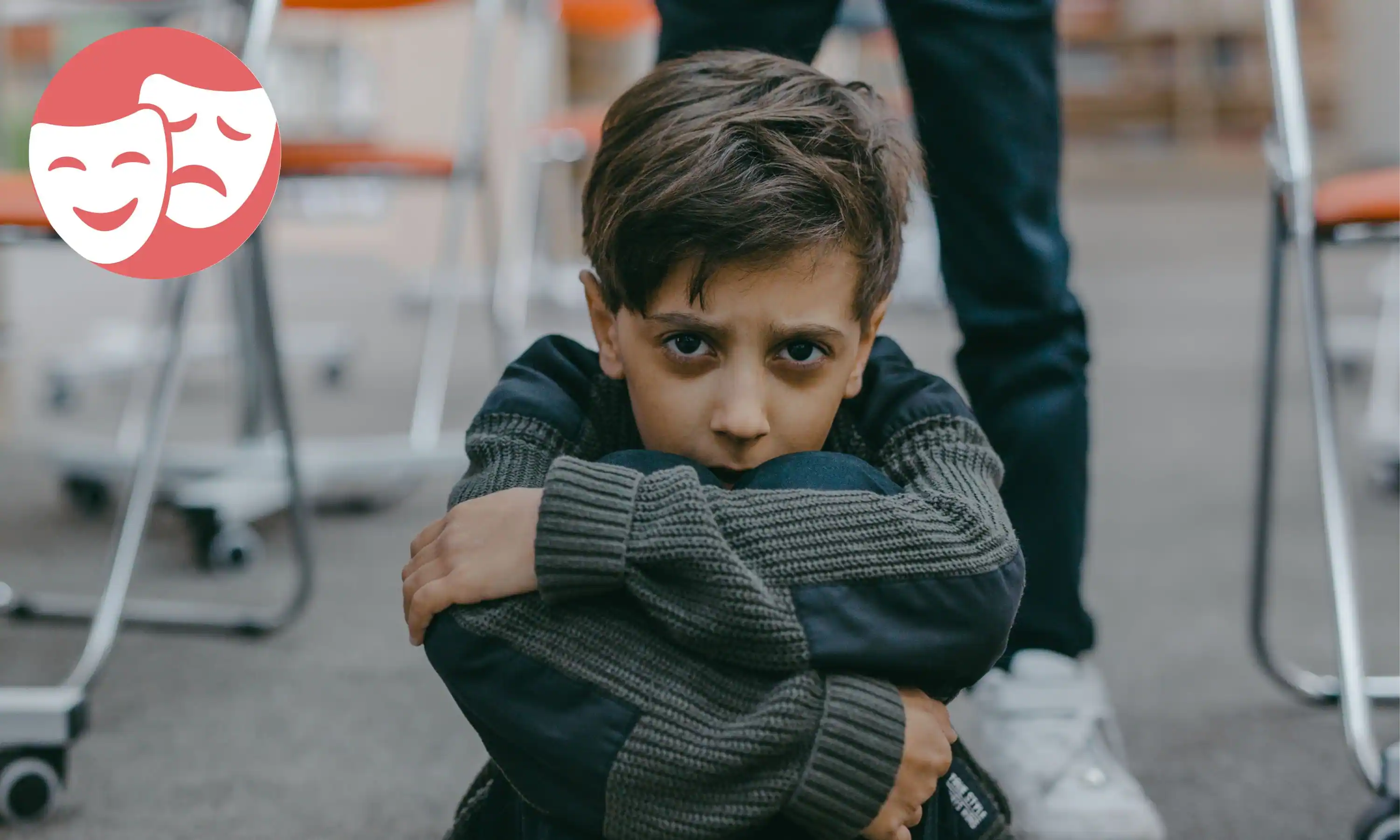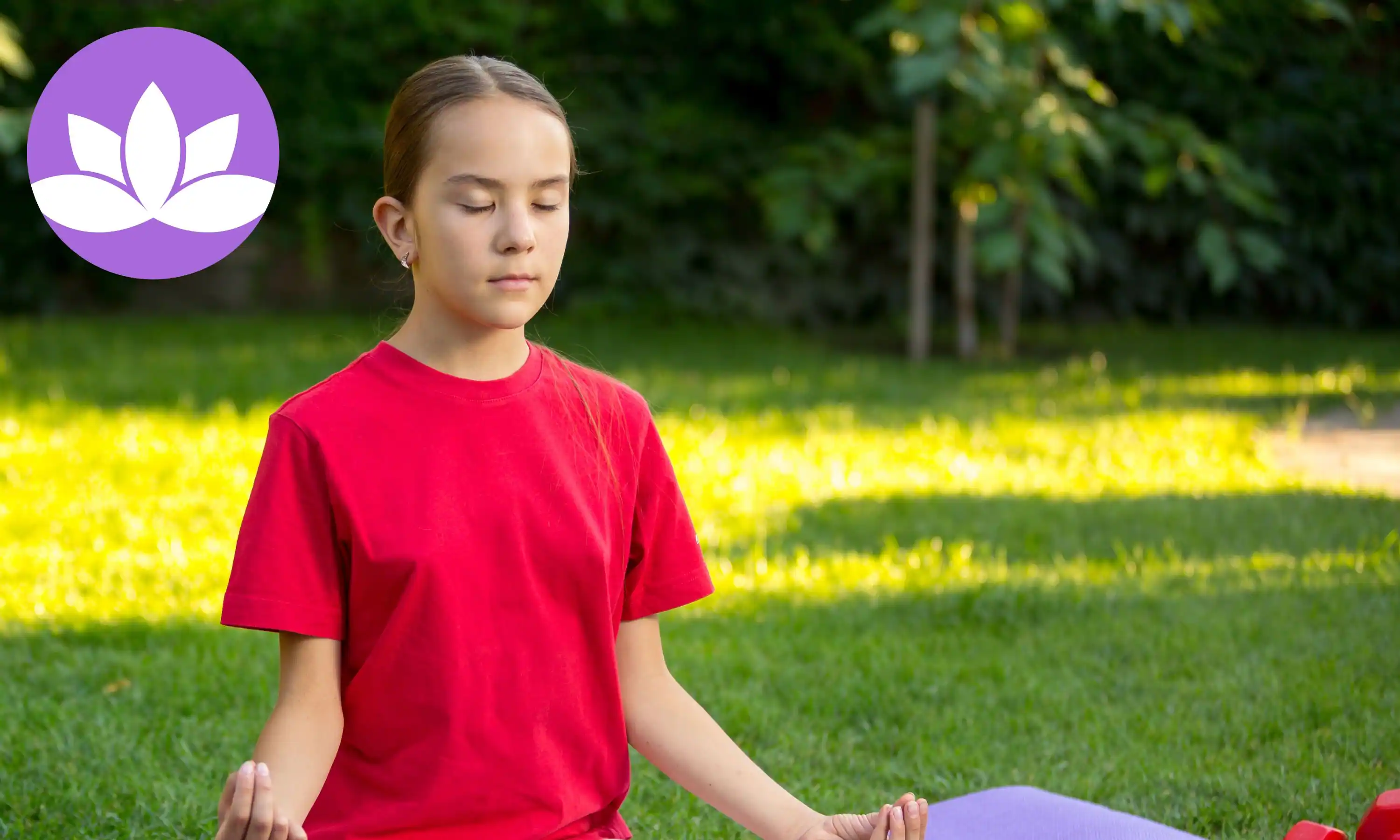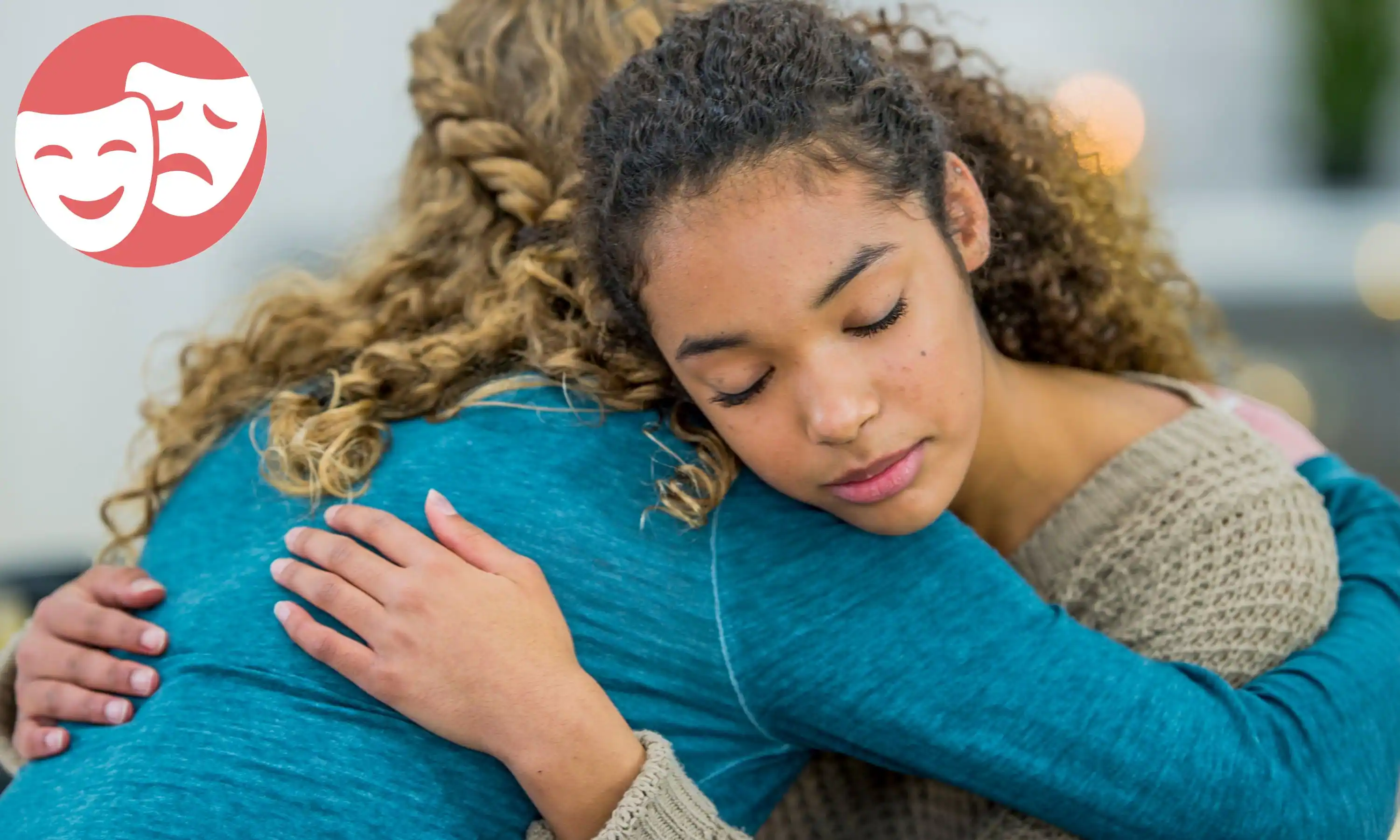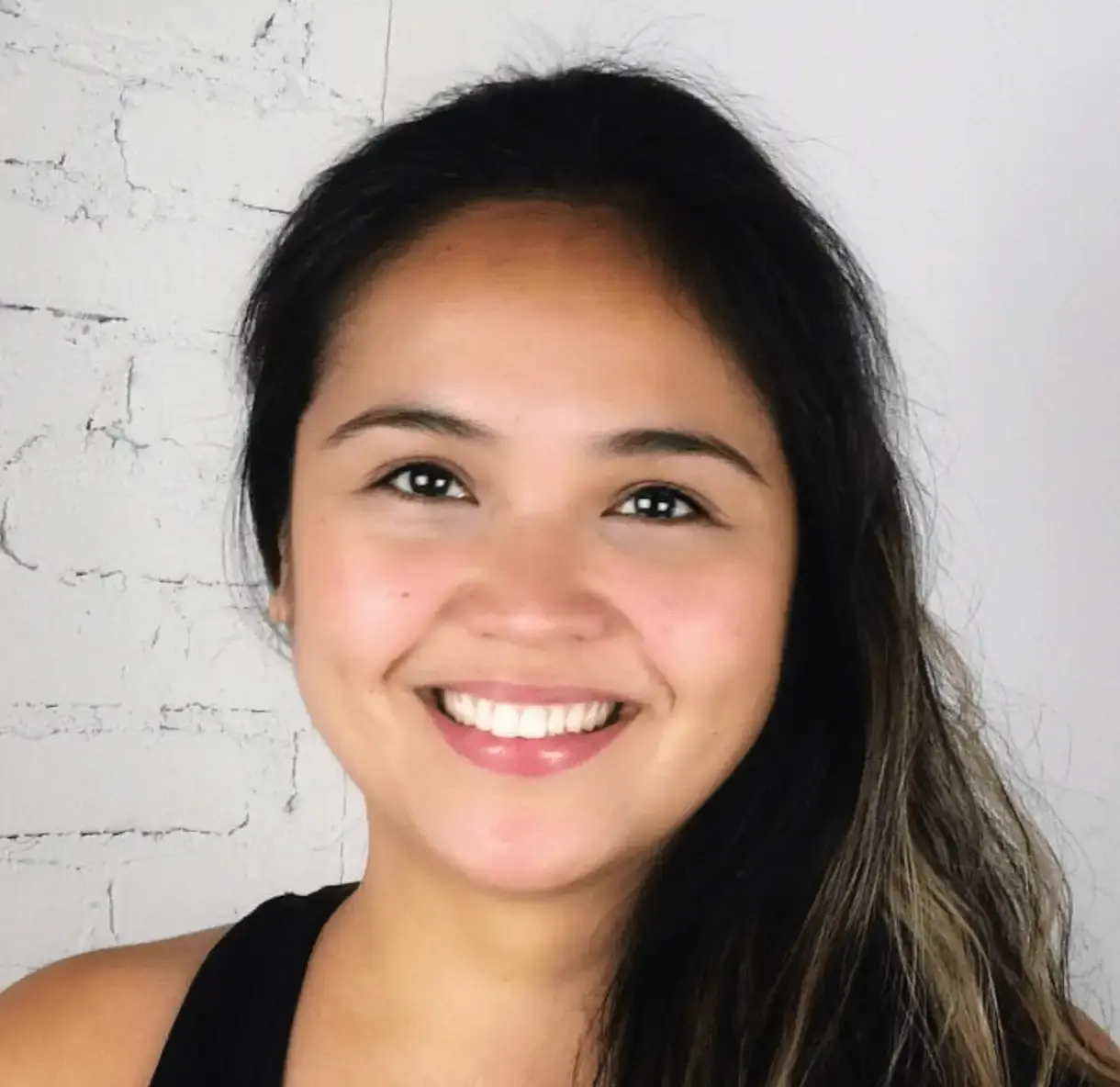Help Your Child Find Courage
in Uncertain Times
Teach calm, strength, and hope during health struggles.
Courage During Health Challenges
Designed with educators, backed by psychology, and
easy to integrate into your school’s
routine.

Plan Objectives
 Overcoming Fear
Overcoming Fear
Teach children techniques to manage anxiety and develop confidence when facing health challenges.
 Practicing Mindfulness
Practicing Mindfulness
Provide mindfulness exercises to help children stay present and calm in difficult situations.
 Building Emotional Strength
Building Emotional Strength
Develop resilience to help children handle uncertainty and medical stress with confidence.
 Encouraging Self-Awareness
Encouraging Self-Awareness
Help children recognize their emotions and express them in a healthy way.
Why This Plan?
This plan addresses the following challenges by developing targeted skills

My child has fears that overwhelm them

My child has difficulty outside of their comfort zone

My child becomes upset when plans change

My child is unaware of their own emotions
My child has fears that overwhelm them
How This Plan Helps
Provides structured approaches to overcoming fear and building confidence in medical or health-related situations.
Skill: Fear Management
Course: FearLESS: Building Brave Young Hearts
My child has difficulty outside of their comfort zone
How This Plan Helps
Encourages mindfulness and breathing techniques to remain calm in unfamiliar environments.
Skill: Meditation
Course: Meditation Foundation: Breath & Self-Awareness
My child becomes upset when plans change
How This Plan Helps
Teaches adaptability and emotional regulation to handle unexpected changes.
Skill: Resilience
Course: Resilient You: What is Resiliency?
My child is unaware of their own emotions
How This Plan Helps
Helps children recognize and express their emotions in a healthy way.
Skill: Self-Awareness
Course: Exploring You: A Journey to Self-Awareness
01 Facing Medical Procedures with Confidence
Provides children with strategies to stay calm and manage anxiety before and during medical treatments.
02 Practicing Mindfulness During Recovery
Teaches mindfulness techniques to manage pain, stress, and emotional discomfort.
03 Adapting to Health-Related Lifestyle Changes
Helps children adjust to new routines and health requirements with resilience.
04Expressing Feelings About Their Health Journey
Encourages children to talk about their emotions and seek support when needed.
Real-Life Applications
How this plan's skills apply to real-world scenarios for everyday success
Courses Included


FearLESS: Building Brave Young Hearts
Emotional
Fear Management
Course Details:
Modules: 4 |
Lessons: 33
Understanding Fear: Recognize fear’s role and learn when it’s helpful or harmful.
Coping Strategies: Explore methods to manage fears like social anxiety and failure.


Meditation Foundation: Breath & Self-Awareness
Mindfulness
Meditation
Course Details:
Modules: 4 |
Lessons: 32
Mindfulness Skills: Develop mindfulness to enhance focus, manage emotions, and reduce stress.
Self-Awareness: Cultivate awareness of thoughts, feelings, and behaviors to foster personal growth.


Resilient You: What is Resiliency?
Emotional
Resilience
Course Details:
Modules: 4 |
Lessons: 31
Resilience Building: Enhance resilience through effective goal-setting and learning from setbacks.
Emotional Regulation: Improve well-being by developing skills for managing stress and emotions.


Exploring You: A Journey to Self-Awareness
Emotional
Self-Awareness
Course Details:
Modules: 4 |
Lessons: 32
Emotional Intelligence: Recognize and manage emotions to improve mental well-being.
Self-Awareness: Understand how personal values influence decision-making.
Meet the Course Creators

Lauren Hudak
FearLESS: Building Brave Young Hearts
Lauren Hudak
FearLESS: Building Brave Young Hearts
Lauren Hudak is an educator with over eight years of experience. After graduating from the University of Virginia with degrees in English Literature and Media Studies, she went on to get her Masters in Teaching from New York University. Lauren has worked with all ages of students from Pre-K through college, but she thrives when working with middle schoolers. She believes this is the perfect age to integrate mindfulness, technology, and social emotional learning into student learning objectives. She wants to help students conquer their fears and build a better world. When she’s not teaching, Lauren loves being outdoors, traveling and spending time with her family.

Mariel Reyes
Meditation Foundation: Breath & Self-Awareness
Mariel Reyes
Meditation Foundation: Breath & Self-Awareness
Mariel Reyes is an engaging and experienced yoga and meditation teacher with over a decade of experience. She holds a 200-hour Meditation Teacher Training certificate from The Three Jewels, one of the most well-known meditation studios in New York City. As a seeker and student of meditation, she has taken part in meditation retreats from upstate New York, all the way to an ashram in India. Trained in the Tibetan Buddhist lineage, she brings her knowledge and understanding of ancient meditation teachings and practices and fuses them with simplicity and accessibility. She encourages children to be playful, curious, and inquisitive when exploring mindfulness and meditation. In addition to her expertise in meditation, yoga, and wellness, Mariel has more than 15 years of experience teaching children of all ages.

Dr. Kymberli Barker
Resilient You: What is Resiliency?
Exploring You: A Journey to Self-Awareness
Dr. Kymberli Barker
Resilient You: What is Resiliency?
Exploring You: A Journey to Self-Awareness
Dr. Barker is the mother of two fantastic young men, and they are her priority in life. She holds degrees in biochemistry, math, forensics, and psychology. She is a consultant and a professor at multiple colleges, including the Citadel, and Johns Hopkins Center for Talented Youth. She spent fifteen years in public education, prior. Her personal focus is child advocacy and she developed the Guardian ad Litem/(GAL)/CASA program for the Eastern Band of Cherokee Indians. She is tribally and state sworn as a GAL. Her favorite thing is being a mom.
Sample Lesson Preview 
FearLESS: Building Brave Young Hearts
Fight, Flight, or Freeze
The Triple F’s of Fear
Fight, Flight, and Freeze are the three basic ways that our bodies respond to threats.
Your brain might decide that fighting the danger is best. For example, if you are faced with an unfriendly animal, you might yell or throw things at it to try to get it to go away. You might have learned to wave your arms and stomp your feet. You’re trying to prove that you are the bigger threat so the animal will leave you alone!
Sometimes, flight is the best option. Your brain wants to get you out of a dangerous situation quickly. This could mean physically running away from something scary, but it could also mean avoiding something that you find intimidating. For example, maybe it means not raising your hand in class because you’re scared you’ll get the answer wrong in front of others.
The last “F” stands for freeze. Sometimes, your brain can’t make a decision. Instead of fighting or running from the danger, you freeze up. You might have a hard time speaking or yelling, your mouth might go dry, or you might feel faint or lightheaded.
Sample Lesson Preview 
Meditation Foundation: Breath & Self-Awareness
What is mindfulness?
When to Practice Mindfulness
You don't need to wait for a stressful time to practice mindfulness. The practice of being mindful is available to you any time of the day! Taking a moment to take a deep breath during the course of your day, or stopping to admire a freshly bloomed flower is a way of practicing mindfulness. When you are slowing down and being present in the moment, you are being mindful.
Sample Lesson Preview

Resilient You: What is Resiliency?
What is Resilience?
What is Resilience?
What exactly needs to be developed to become resilient?
Many agree there are different levels of resilience to be expected at different ages and even in different fields.
For example training on military resilience is very different from how we would discuss it with teens. This course will introduce concepts for variations and provide links to additional information.
For now, we are going to begin with the idea of the 7 Cs mentioned by Coach Reese. Here they are again in case you missed them: Confidence, Competence, Connection, Character, Contribution, Coping, Control.
These seven concepts really summarize where we need to focus our attention to become stronger in certain areas of our lives.
The students will be developing their personal research focusing on one or more of these areas.
You might consider researching along with them. Where do you think you might work a bit more on skills for bouncing back?
Sample Lesson Preview 
Exploring You: A Journey to Self-Awareness
Thinking about Thinking
Thinking About Thinking
-
Self Awareness involves recognizing aspects of who you are as a person. This includes what you think and feel, how you react, and importantly, why.
-
A good practice in developing self-awareness is focusing on your thoughts. What are you thinking? When do you have certain thoughts? Why do you have these thoughts? Are they productive or harmful?
-
We will begin with thinking about thinking. Our brains are the greatest supercomputers ever created. We have so many thoughts and we process them so quickly we are often unaware of their existence.
-
By learning to think about thinking we begin to focus on our thought life, which ultimately becomes our real life.
